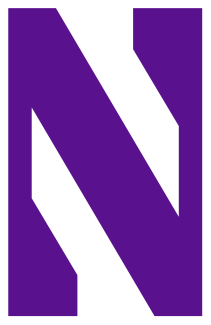Who (2008)
by Geoff Smart, Randy Street
“One of the most challenging things we do as coaches is forecast out not just who they are today, but are going to be far into the future,” Tambroni said of recruiting.
Smart and Street deconstruct and reassess the hiring process through interviews with CEOs, statistical analyses and a large swath of research to outline steps that they believe will increase the likelihood of putting the right people in the right place.
“Who is your number-one problem,” the first line of the book reads. “Not what.”
As a way to be more deliberate in finding who best compliments the Penn State program, Tambroni and his staff prioritize five characteristics that align with their core values in the individuals they want to work with or look for on the recruiting trail.
-
Optimistic (Find a positive solution)
-
Grow mindset (Resilient)
-
Relentless work ethic
-
Compassionate (Genuinely care for the organization)
-
Loyal (Big picture we vs. me guy)
Talking to Strangers: What We Should Know about the People We Don't Know (2019)
by Malcolm Gladwell
The Cubs Way: The Zen of Building the Best Team in Baseball and Breaking the Curse (2017)
by Tom Verducci
Before then-Cubs manager Joe Maddon discussed his pitching rotation or any defensive shifts that helped the franchise win its first World Series in 108 years, he knew his first responsibility was to connect with his players. Only then could he build their trust. He often prioritized keeping the game fun to counteract the grueling season. There were themed road trips, late gameday arrival and antics like playing three pitchers in the field in one game.
For Tambroni, Maddon’s methods helped reinforce the idea that relationships come before and inspire the scheme, not vice versa. The Nittany Lions staff spends a lot of time thinking about how they’d go about a “Day One” practice.
They’re driven by the question, “Can you inspire a certain athlete if you don’t know their why?” To help answer that, Penn State creates an individual development plan for every student-athlete. The three ring binders are filled with each player’s name, background and story, plus a purpose statement, why they came to Penn State and what they are hoping to accomplish.
“To be a part of a program or an organization that you know is looking to transform you as a young man or as a coach, you’re a lot more inspired to connect and invest,” Tambroni said.
Find Your Why: A Practical Guide for Discovering Purpose for You and Your Team (2017)
by Simon Sinek, David Mead
The Hard Hat: 21 Ways to Be a Great Teammate (2015)
by Jon Gordon
Tambroni will never forget having to communicate with the rest of the Cornell lacrosse team that four-year starter and captain George Boiardi had died after getting hit by a shot at Schoellkopf Field in a game against on March 17, 2004.
From that day on, the team vowed not just to play in honor of Boiardi, but to pass that spirit along. Before that tragedy, Tambroni said he had been so driven to win that he lost scope of the most important lesson he’s learned and the one he started his LaxCon talk with: Listen.
“It showed and taught me the lesson and purpose as to why I coach,” Tambroni said. “Stepping back and saying while winning is still important, the purpose of developing these relationships, the purpose of inspiring young men to see and reach their potential. To prepare young men to be better young men of character for the path that they are taking is the purpose of our day to day profession.
“While winning is important, it doesn’t hinder our ability to do what we want to do, which is connect and develop the trust in our young men and to be rewarded about their successes in their environment. Hopefully in some way, shape or form that spirit will continue to be passed on.”


























































